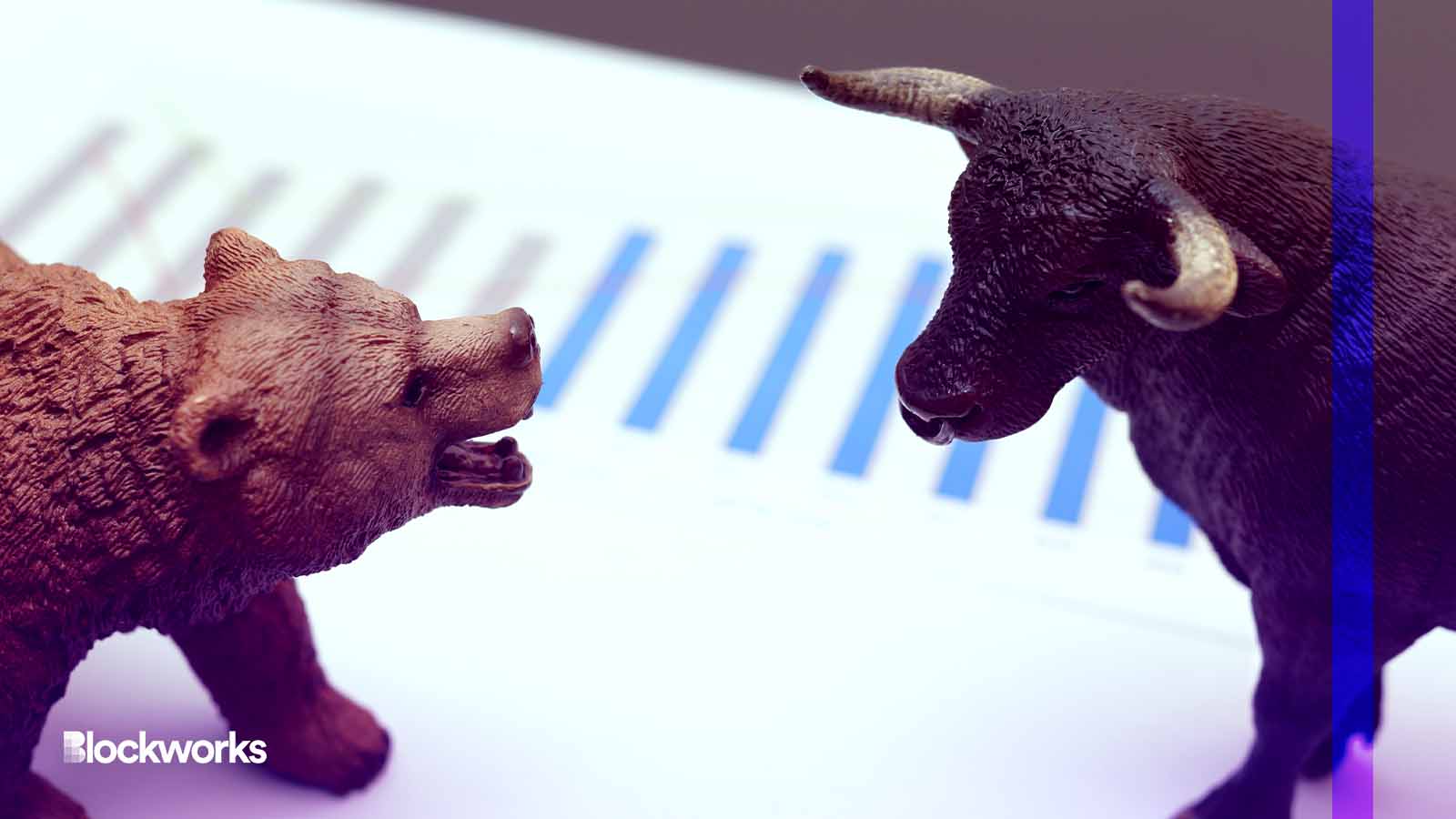Are you bullish or bearish on Friend.tech?
Ansem warns that betting on Friend.tech shares is highly speculative: “If it goes up too fast, it’s going to come down”

Bacho/Shutterstock modified by Blockworks
Santiago Santos says he was lucky to pick up an invite-only Friend.tech code to join in the latest crypto social media craze. But after starting up the app on his mobile device, a request to connect his X account stopped him from going any further.
“There’s no fucking way that I’m gonna connect my Twitter to this thing,” he says.
Speaking to Blockworks on the Empire podcast (Spotify/Apple), crypto trader and X influencer Ansem is quite a bit more adventurous. Diving into the new social app earlier than most, he now ranks highly amongst popular profiles on the Ethereum layer-2 Base-deployed app.
Ansem explains the basic premise of Friend.tech. After signing up, users buy their own share for roughly a dollar. “Once you buy your token, it’s available for trading and then everybody else on the app can trade — buy and sell — your token.”
Ansem suggests that a Friend.tech user might invest in a founder, musician, artist or athlete that hasn’t hit mainstream popularity yet. “Hold one of their shares and then as they grow and as they get more popular,” he explains, “their share price may go up.”
Owning a share also gives direct access to profiles, Ansem explains. “Say somebody’s an expert in some field of technology or in their industry and they want to share information through chat, then you buy their shares. You have access to that until you decide to sell.”
“People who are more active,” Ansem explains, “their share price is typically higher. People feel like they have that closer connection and closer access to them,” he says.
Unlike X, formerly Twitter, where the constant deluge of direct messages to profiles with huge follower counts can be overwhelming, Ansem says it’s much easier to filter through the more controlled information inflow.
Podcast host Jason Yanowitz expresses enthusiasm about the new app. “It’s cool to have a platform that allows you to bet both long and short on people in general.”
Ansem admits that the app is a little “bare-bones” at the moment, with no sort of public feed and an explore page that is “hard to filter through,” but he expects that the “core functionality” of the app will not change significantly.
Bullish on your friends?
Ansem then presents what he sees as the “bull case” for Friend.tech using the example of Taylor Swift, whose concert tickets have resold for thousands of dollars. “If she were to have a Friend.tech group,” he says, “you would assume that there’s going to be people willing to pay whatever premium to get that direct access to her.”
“She can give access to her shareholders via private meetups or signings.”
People can also benefit from investing early in rising talents, Ansem explains. Users could pick out an up and coming college athlete, he says as an example, betting on the individual and — hopefully — watching them succeed. “That ability to bet on an individual early in their career, and then them blowing up, has never been possible before.”
But Ansem admits, Friend.tech is fraught with speculation. “If it goes up too fast, it’s going to come down.” Owners of multiple shares of the same profile are likely to take profits as share prices climb, he says. “There’s always going to be somebody who bought high and then the price goes down.”
“In the case where you have somebody famous and they do something publicly that’s not great — and then their share price goes down — people can lose money on that.”
The speculative nature of such an application has its benefits, Yanowitz says. It’s “amazing for customer acquisition costs,” he says, adding that Friend.tech now has over a 100,000 users, acquired in just two weeks. “There’s no marketing plan that would’ve accomplished that,” he says.
Santos remains skeptical, concerned over possible security failures. “I’m not going to link my Twitter.”
“It opens up a vector where it could get compromised,” he says. “But I’m noodling on it. I may go on there.”
Get the news in your inbox. Explore Blockworks newsletters:
- The Breakdown: Decoding crypto and the markets. Daily.
- 0xResearch: Alpha in your inbox. Think like an analyst.






